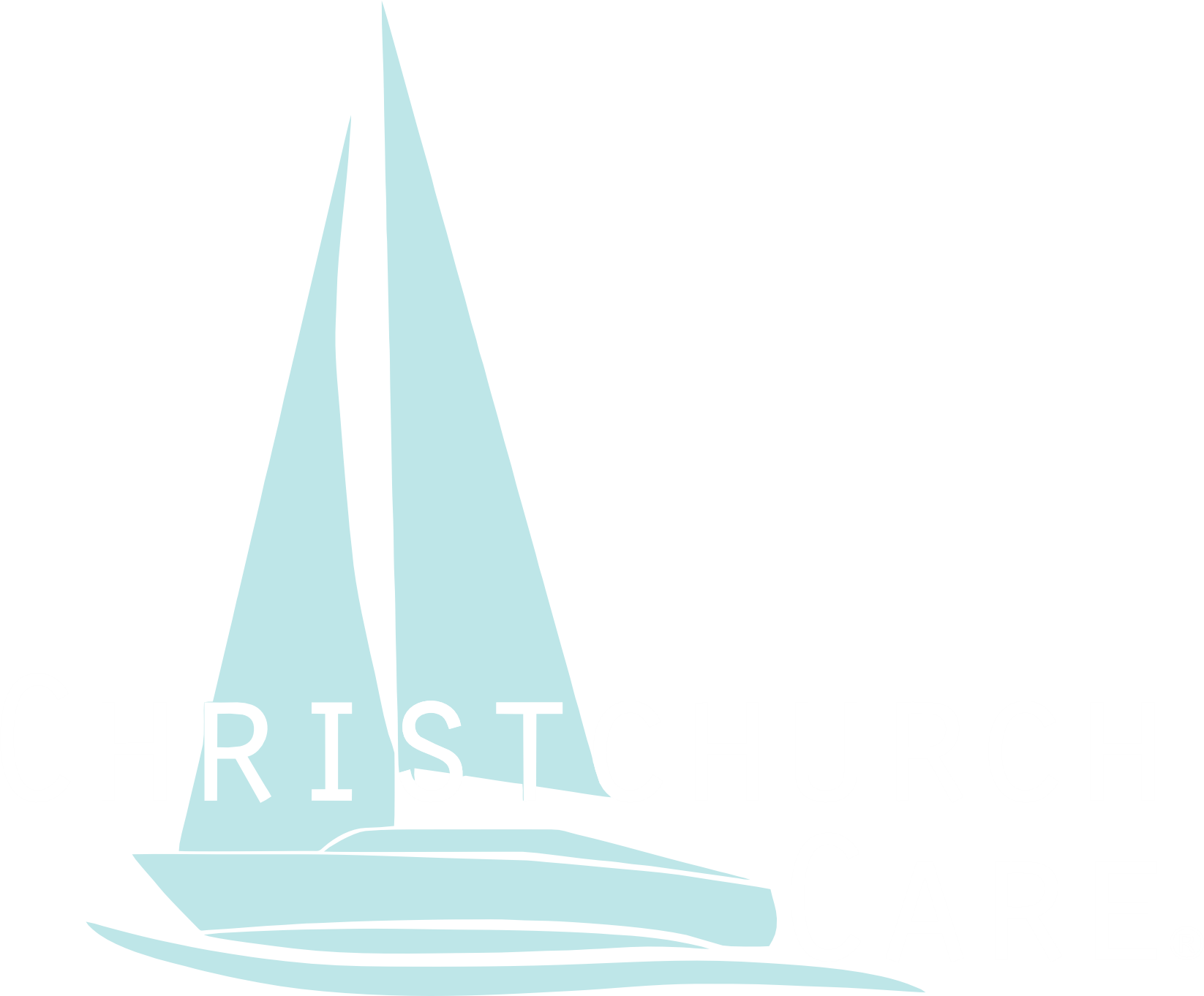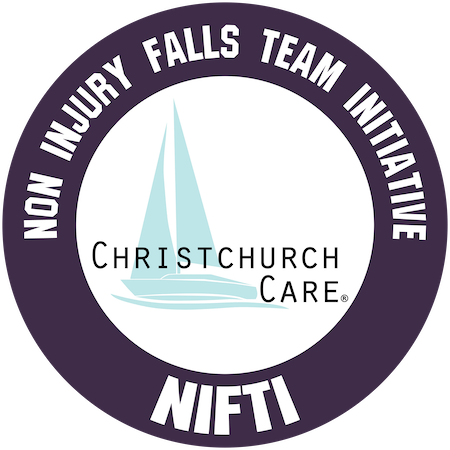
Christchurch: 01202 496516
Winchester: 01962 940100
Out of Office Care: 07949 152730
Email: info@christchurchcare.co.uk
CARE AT HOME
Non Injury Falls Team Initiative (NIFTI)
NIFTI
We recognise the need to give support to our clients for whom a hospital admission is neither desired, necessary, or in their best interest. As our domiciliary team has gradually expanded in numbers, skills and expertise, a dedicated care at home management team has evolved, creating our own hospital avoidance team.
During the initial lock down of the 2020 pandemic, Christchurch Care managers consulted to create an expert “first response” team for our service users. The purpose was to risk assess and report to health professionals, aiming to reduce health professional community visits and therefore reduce community cross infection.
A Raizer Chair, portable moving and handling equipment, was purchased. This enabled independently mobile service users who had fallen to be safely restored to a sitting position until they felt able to mobilise. A robust screening tool was created in line with Restore 2 observations, encompassing pain and neurological observations and FAST assessments.
Whilst our NIFTI evolved as a result of our best intentions to reduce cross infection, the team are very successful and now has a trademarked business model in place.

Areas Covered
Christchurch
New Milton
Southbourne
Bournemouth
New Forest
Lymington
Ringwood
Barton
Brockenhurst
Lyndhurst
Ferndown
Verwood
Statement of Staff Skills
Statement of Staff Skills
The NIFTI team work in pairs at all times. Each care at home pair has a range of skills set out below and has undertaken a 3 day first aid course and Restore 2 observations.
Our NIFTI also includes:
Moving and Handling trainers
Occupational Therapy students
Student Nurses
Level 3, 4 and 5 Health and Social Care Diplomas
Moving & Handling Equipment
Moving & Handling Equipment
Our Raizer Chairs are regularly inspected and meticulously maintained in accordance with manufacturer guidelines and all relevant manual handling protocols. This ensures that the equipment is always in optimal working condition, providing a safe and effective solution for clients.
All our staff members receive comprehensive training, not only in general moving and handling techniques but also in the specific use of the Raizer Chairs, ensuring they can operate the equipment confidently and safely. To enhance convenience, the portable battery packs are designed to be easily recharged at the clients' properties or via our staff vehicles, allowing for seamless usage and minimal disruption to the care routine.
Reporting & Recording Accidents
If the care at home service user does not meet our risk assessments, we will send for urgent medical aid and remain with the individual until help arrives.
We will ask the individual for consent to inform their next of kin and the GP practice will receive a copy of our report.
A follow up welfare call is made later in the day or following day, as appropriate.
Risk Assessments, Protocols, Reporting and Follow Up from NIFTI call outs
Risk Assessments, Protocols, Reporting and Follow Up from NIFTI call outs
Each client is assessed in situ to establish an antecedent to the fall, medical history, mobility. The current health status is also assessed, including skeletal and tissue surveys. A set of observations is recorded in line with Restore 2. In order for the client to be moved, they must be pain free and able to roll from side to side on the floor.
The Raizer chair paddles are inserted whilst the client is supported by two staff to roll from side to side. Once the raizer chair has elevated the individual to an upright sitting position, the individual is encouraged to remain seated whilst postural hypotension is reconciled. A further set of observations is recorded in line with Restore 2. The individual is then supported to a comfortable chair and offered help with continence and a drink or snack of choice.
FAQs
The NON-INJURY FALLS TEAM INITIATIVE (NIFTI) was named and created by our founding Director, Carolyn.
If I am already having care from Christchurch Care, do I pay an extra subscription to have NIFTI services?
No, clients who receive care from us will automatically be added to our NIFTI service, provided they meet the criteria. This is discussed at assessment.
Can I subscribe to NIFTI if I have care from another provider?
Yes, you will pay a monthly subscription
Can I subscribe to NIFTI if I am not having any care?
Yes, you can. We will visit you and carry out a brief assessment to gain key information about you such as your medical history, your next of kin and how to enter your home.
How do I pay for NIFTI?
Via monthly subscription.
How do I cancel the NIFTI subscription if I no longer need it?
Tell us in writing, with one months notice.
How do I contact the NIFTI?
You can call or email any of our branches to arrange an assessment.
How will I contact you when I have fallen?
Our teams will provide you with emergency contact details which can be entered into your phone. If you have a care line, ask them to call Christchurch Care out of hours team.
What if I am injured?
We will organise an ambulance for you.
What if I have hit my head or can’t remember falling?
We organise an ambulance for you.
What if I don’t want to go to hospital?
Paramedics will ask your permission to liaise with your next of kin and your GP so that you are aware of any risks. In certain circumstances, additional support, equipment and treatment can be put in place to facilitate your care.
Can I have emergency care visits from Christchurch Care to support me remaining at home?
Absolutely, but we will need to be sure that your GP and community support team are aware that you wish to remain at home.
How will you assist me to get up?
Two staff will attend to you: we will gently roll you from side to side so that we can put our mobile lifting equipment in place. You will be slowly raised to an upright sitting position. Your vital observations will be rechecked whilst you are sitting upright in our equipment, and we will offer you a drink. When you are ready to stand upright, equipment, with carers either side of you, will support you to slowly stand and transfer to a chair.
What if I still feel unwell when I sit up?
We will not leave you until we are satisfied you are safe and returned to your pre-fall state. If you feel unwell, we will ask your permission to contact your GP surgery for advice.
Will my GP surgery know I have had a fall?
Yes, we discuss this at your assessment. We always let your GP surgery and next of kin know that we have given you assistance following a fall.
Get In Touch
You can either phone our offices: 01202 496516 or email us: info@christchurchcare.co.uk for further information. Non-Christchurch Care clients pay a monthly subscription to our services and complete a basic self- assessment of medical status, property entry details, important wishes and next of kin details.
Contact Us
We will get back to you as soon as possible.
Please try again later.

Get In Touch
Head Office:
Christchurch Care, Unit B4, 2-8 Airfield Way, Christchurch, BH23 3TS
Daytime Tel: 01202 496516
Agency Service (Out of Hours) No: 07948 124720
Domiciliary Care (Out of Hours) No: 07949 152730
Winchester Branch:
Christchurch Care (Winchester), Basepoint Offices, 1 Winnall Valley Road, SO23 0LD
Winchester Office:
01962 940100
Email: info@christchurchcare.co.uk
Duty of Care
Everyone working on behalf of Christchurch Care has a Duty of Care to the people they look after. Our healthcare professionals must reasonably ensure that no harm comes to any person under their care.
Privacy, dignity and choice must be protected at all times.
All Rights Reserved | Christchurch Care | Privacy Policy




